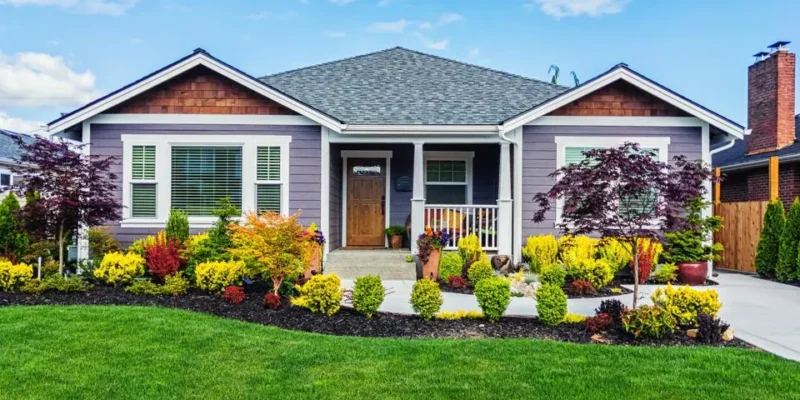Edible gardens are becoming increasingly popular in Nuneaton’s landscape design, as homeowners seek to combine functionality with sustainability and personal satisfaction. By incorporating edible plants into garden designs, landscape gardeners are creating spaces that not only enhance aesthetic appeal but also provide practical benefits and promote a healthy lifestyle.
One of the main advantages of edible landscaping is the opportunity to grow fresh, home-grown produce. Edible gardens allow homeowners to cultivate vegetables, fruits, herbs, and other plants that can be used in cooking and daily meals. This can lead to a more sustainable lifestyle by reducing reliance on store-bought produce and minimizing food miles. In Nuneaton, landscape gardeners are designing gardens with a focus on incorporating a variety of edible plants, ensuring that the garden is both productive and visually appealing.
Edible gardens also promote biodiversity and environmental sustainability. By growing a diverse range of plants, homeowners can attract beneficial insects and pollinators, such as bees and butterflies, which contribute to a healthy garden ecosystem. Nuneaton’s landscape gardeners are using companion planting techniques to enhance plant growth and deter pests naturally. For example, planting marigolds alongside tomatoes can help repel harmful insects and improve overall plant health.
Incorporating edible plants into garden design can also add unique visual interest and texture. Many edible plants, such as colorful heirloom tomatoes, vibrant Swiss chard, and fragrant herbs, offer striking aesthetics that can enhance the overall beauty of the garden. Landscape gardeners in Nuneaton are integrating these plants into garden beds, containers, and vertical gardens, creating dynamic and attractive outdoor spaces that provide both visual appeal and practical benefits.
Edible gardens can also contribute to a sense of community and well-being. Community gardens and shared edible spaces offer opportunities for social interaction and collaboration, allowing residents to connect over a shared interest in gardening and sustainable living. Nuneaton’s landscape gardeners are involved in designing and maintaining community gardens that bring people together and provide valuable resources for local neighborhoods.
In addition to traditional garden beds, edible plants can be incorporated into various garden features, such as raised beds, container gardens, and vertical planters. Raised beds are particularly useful for growing vegetables and herbs, as they provide better drainage and allow for easier access and maintenance. Container gardens are ideal for small spaces and can be placed on patios, balconies, or even indoors. Vertical planters make efficient use of space and can be used to grow herbs, lettuce, and other compact plants. Nuneaton’s landscape gardeners are using these approaches to create functional and versatile edible gardens that fit a variety of settings.
Educational opportunities are another benefit of edible gardens. Growing one’s own food can be a valuable learning experience, providing insights into plant growth, seasonal cycles, and sustainable practices. Landscape gardeners in Nuneaton are often involved in educational initiatives, such as workshops and community events, that teach residents about the benefits of edible gardening and how to get started.
Incorporating edible plants into garden design also aligns with broader trends in sustainability and self-sufficiency. As interest in reducing environmental impact and promoting healthy lifestyles grows, edible gardens offer a practical and rewarding way to contribute to these goals. Nuneaton’s landscape gardeners are embracing this trend by designing gardens that reflect the values of sustainability, health, and community.
In conclusion, embracing edible gardens in Nuneaton’s landscape design offers numerous benefits, including the opportunity to grow fresh produce, promote biodiversity, enhance visual interest, foster community, and support sustainability. By incorporating a variety of edible plants and utilizing innovative garden features, landscape gardeners create outdoor spaces that are both beautiful and functional, providing practical rewards and promoting a healthier lifestyle.
